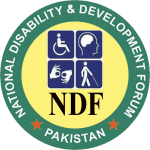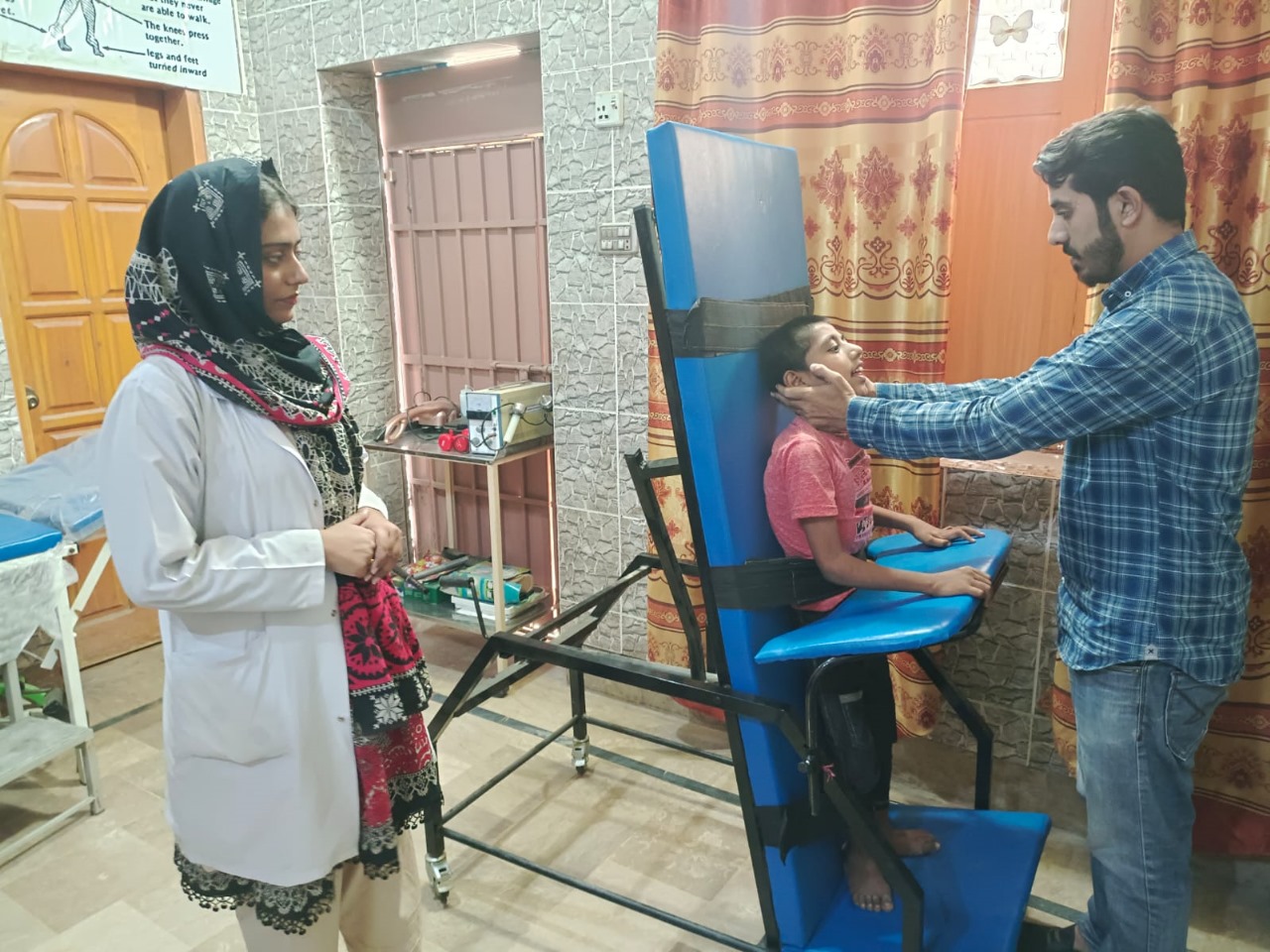The International Day of Persons with Disabilities is celebrated every year on 03 December. The purpose of celebrating the day is to increase social awareness about disability and commit to achieving the development of persons with disabilities in the 17 Sustainable Development Goals.
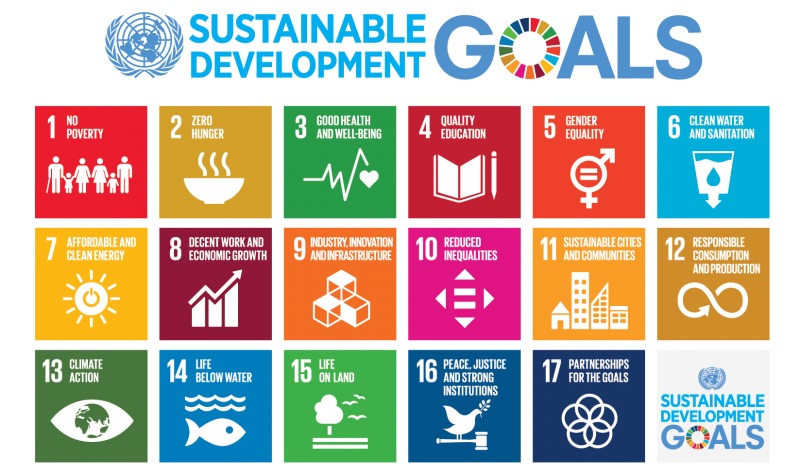
Disability refers to different parts of the SDGs, particularly education, development and employment, inequality, access to human settlements, as well as data collection and monitoring of the SDGs, for example: inclusive and equitable quality education for all, promoting lifelong learning opportunities.
SDG Goal 04 focuses on eliminating gender disparities in education and ensuring equal access to all levels of education and vocational training for the vulnerable, including persons with disabilities. In addition, the proposal calls for the construction and upgrading of educational facilities that are child, disability and gender sensitive and provide a safe, non-violent, inclusive and effective learning environment for all.
In SDG Goal 8, the international community aims to achieve full and productive employment and decent work for all women and men, in order to promote sustainable, inclusive and sustainable economic growth, full and productive employment and decent work for all, including for persons with disabilities, and equal pay for work of equal value. SDG Goal 10 is closely related to disability, which countries must achieve by empowering and promoting the social, economic and political inclusion of all, including persons with disabilities, it seeks to reduce inequality within and between.
Target SDG Goal 11 will work to make cities and human settlements inclusive, safe and sustainable. To achieve this goal, Member States are required to provide access to safe, affordable, accessible and sustainable transport systems for all, improve road safety, especially public transport. By expanding, paying special attention to the needs of those in vulnerable situations, such as the disabled. In addition, the proposal calls for providing universal access to safe, inclusive and accessible, green and public spaces, especially for persons with disabilities.
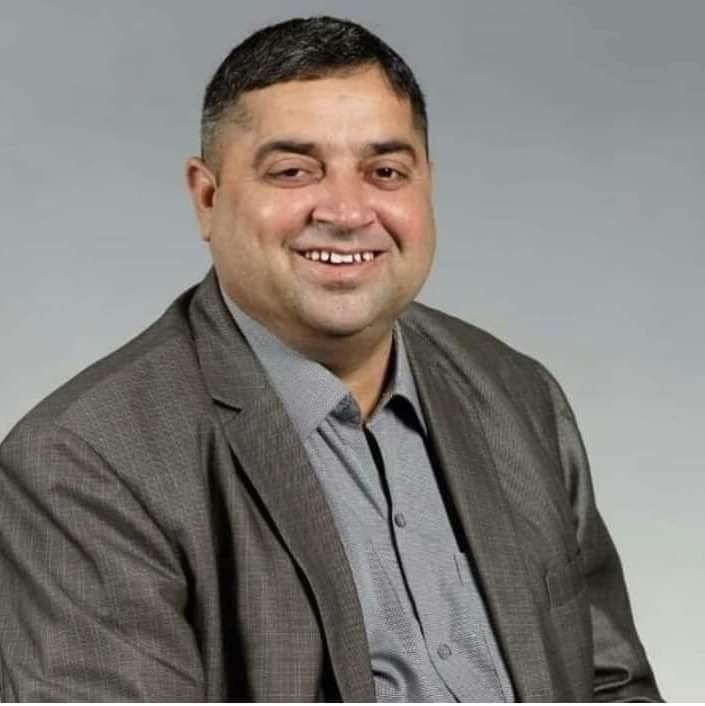
SDG Goal 17 emphasizes that data collection and monitoring and accountability for the SDGs are critical to strengthening the means of implementation and revitalizing the global partnership for sustainable development. Member States are called upon to push for increased cooperation in capacity-building for developing countries, including least developed countries (LDCs) and small island developing States (SIDS), to ensure high quality, timely and affordable Trust will significantly increase the availability of data which is also for persons with/without disabilities.
The 16% of the world’s population consists of people with disabilities. There are millions of disabled children in our society, among whom mentally disabled children are more important, their rehabilitation is no less than a challenge. The intellectual disabilities is a huge problem that needs to be addressed all over the world. The growing trend of this disability is due to social ignorance, lack of general awareness and prevailing uncivilized customs. Intellectual disability is very difficult to understand in rural and urban areas. This amounts to not providing early diagnosis and treatment and rehabilitation of the child.
The sooner a child is diagnosed, the sooner recovery is possible. Children in rural villages are deprived of such facilities. Children with intellectual disabilities are called crazy or Darvesh-Allah Lok. Instead of being understood, they are mocked and ignored. In such cases, children become frustrated and angry and their condition worsens instead of improving. Such children need special attention. Special attention is needed in a special center, commonly known as the rehabilitation center for children with intellectual disabilities. Such centers are common in Karachi but other districts of Sindh do not have such centers and Karachi city is far away from different districts
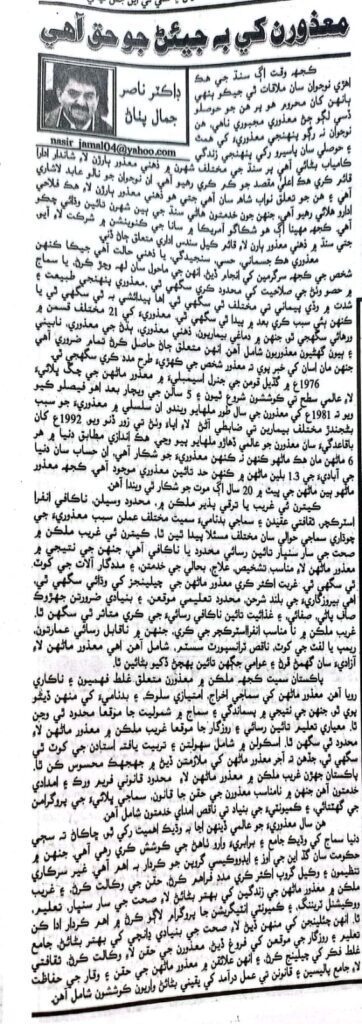
Getting there, staying and continuing treatment and recovery is a very difficult process. Keeping this issue in mind and to meet the need, National Disability and Development Forum (NDF), in collaboration of Department of Empowerment of Persons with Disabilities, Government of Sindh established 03 Centers in Nawabshah, Larkana and Karachi. Such institutions are very few but are committed with the vision despite the challenges, the proved it & serving for hundreds of children. The philanthropists of the society and the organizations of the corporate sector continue to join hands with the NDF Centers while fulfilling their social responsibilities.
The said Centers provide prompt diagnosis, prompt treatment and rehabilitation of mental retardation. NDF centers provide free rehabilitation and treatment services and training for children with intellectual disabilities. A child at the center is first diagnosed with a disability. There are also many types of intellectual disabilities. In which Down syndrome, autism, cerebral palsy, ADHD, dyslexia is prominent. Various therapies and training activities are conducted for each disability, including physiotherapy, psychotherapy, speech therapy and occupational therapy exercises.

The Rehabilitation is better than treatment, there is a need to popularize the knowledge about the rehabilitation of intellectual disabilities and increase the number of rehabilitation centers and establish new units in remote districts of Sindh to widen the scope of services of the institution. The Free Rehabilitation facilities should be provided for disabled children to bring children in mainstream society, to make them productive citizen & proud Pakistani.
